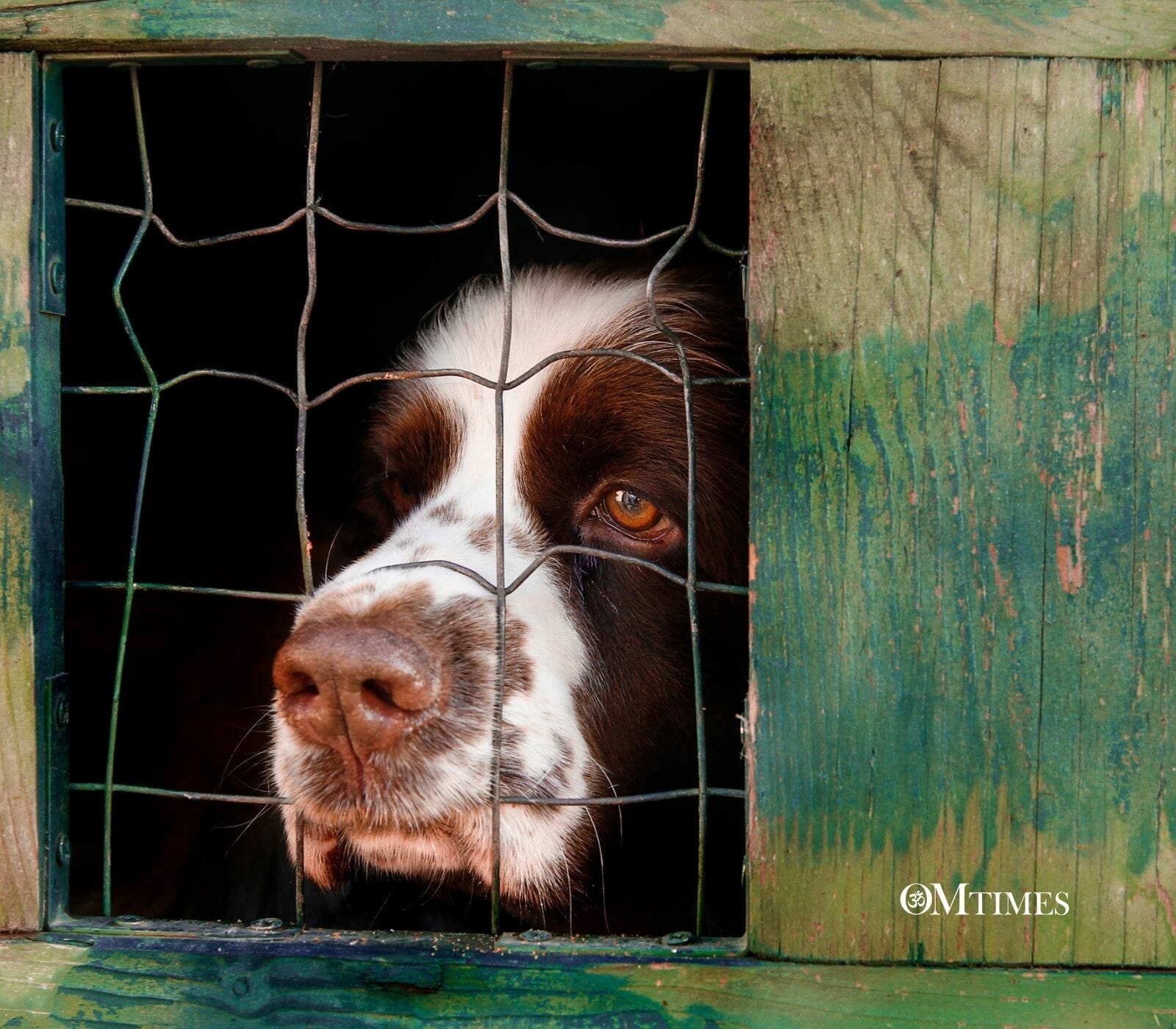Do Animals Suffer from Depression?

Animals suffer depression for the same reasons as humans. However, they perceive reality in a very different way from ours.
Animals and Depression
Why do animals get depressed?
According to the World Health Organization (WHO), there are about 300 million people with depression in the world. So it was just a matter of time before the question arose whether animals are depressed or not.
Depression is a disease with increasing visibility, as well as the theme of animal welfare.
Interestingly, the reasons that trigger depression in an animal are diverse, but at the same time, enormously similar to those found in the human species.
Signs of Animal Depression
Animals are sentient beings, despite not communicating verbally like us, showing depression in other equally indicative ways. Some of the most common signs of depression in (almost) all species are as follows:
Anhedonia: inability to feel pleasure, usually manifested by behaviors such as no play, decreased sexual activity, or direct signs of sadness – such as crying in dogs or tears in elephants.
Anorexia: Loss of appetite. Most animals in deep sadness tend to stop eating.
Abnormal behaviors: stereotypes, self-mutilation, or other behaviors. Stereotypes are repeated movements without any biological sense that are maintained over time.
These behaviors are a clear indication of depression, especially in mammals.
Although the animals most studied initially share life with humans – such as livestock animals – signs of depression are being found in more and more species.
The reality is Animals can get depressed.
Reasons why animals get depressed.
As social mammals, we find it easier to empathize with those similar to us since the brain mechanisms that regulate basic emotions – happiness, fear, sadness, anger, and disgust – are the same for everyone. Thanks to this, you will find many noticeable reasons for depression in animals.
1. Traumatic events
The death of a family member, moments of intense terror, or mistreatment are events in an animal’s life – human or not – that can create that state of extreme sadness that affects them at all levels.
The case of the chimpanzee Flint, studied by primatologist Jane Goodall, is famous for being one of the first to report the presence of pathological mourning in non-human primates. Flint was so depressed after her mother’s death that she stopped eating until he died too.
2. Deprivation of liberty
Captivity is one of the most common triggers of depression and other behavioral disorders in animals. The signs of depression in enclosed living beings are so widespread that the ethical debate about zoos, circuses, animal sales, and industrial operations seems to be endless.
3. All animals are depressed when they are mistreated
In those times, the typical image of the chained and hungry dog ??is the perfect example of arousing empathy.
The direct experience of continuous aggression, abandonment, or deprivation of stimuli is the cause of depression in almost all species.
This reason was one of the first to be studied, thanks to the natural tendency of human beings to feel rejection when witnessing direct violence.
Depression and Prudence
The study of the animal mind is a path that our species has just begun to take. While some things are pretty evident – like a cow screaming for days when separated from its calf – others are less obvious. The balance between empathy and prudence has not yet been found.
Our general tone is because it is easy to empathize with other vertebrate species when it comes to events such as the death of a family member or confinement.
However, as we move away from our phylogenetic branch, more and more specifications require caution when making statements about depression.
The good thing about all of this is that research on animal behavior is becoming broader and more comprehensive. What unites us and separates us from other living beings is intertwined in a beautiful complexity that promises to answer everything.
Tips for cheering up depressed pets.
The mood of animals is very important for their health and quality of life.
Although depression in dogs cannot be diagnosed by veterinarians, there are specific symptoms very similar to those suffered by humans that can end up deteriorating the health of these animals.
What are the symptoms of depressed pets?
As with people, depressed pets lose any trace of interest in the environment, become withdrawn and without energy, with no appetite or desire to leave the house.
These symptoms can also be a consequence of a latent medical problem, so it is advisable to take the animal to the veterinarian as soon as possible to rule out other diseases. Some of the causes of this symptom are sudden changes in the environment, the arrival of another pet or baby, or drastic changes in your routine.
How to Treat and Encourage Depressed Pets
Most dogs overcome this emotional shock with a little love and extra exercise. Guardians who notice this change in mood and focus on spending more time with their dogs doing what they love and giving snacks when the dog is engaged in activities or more active are more likely to succeed.
If, for example, it is a big dog that needs open spaces and many exercises to be himself, but that lives in a small apartment in the city where he spends a lot of time alone, a drastic change of environment is recommended.
While certain breeds of large dogs may be more apt, the truth is that not all dogs can live in a large city. And if depressive symptoms persist, despite the tutor’s efforts, it may be time to find someone who can provide the environment the animal needs.
Can I medicate an animal with depression?
Surprisingly, the answer is yes. There are antidepressant medications that work on both animals and people. In fact, there are even animal therapists who, while not 100% effective, can help your four-legged friend deal with aggressive or self-destructive behaviors. Most animal therapists are ethologists. They are specialists in animal behavior and can help tutors improve their relationship with their pets and deal with real traumas or phobias that hinder their relationship with other animals or other people.
Click HERE to Connect with your Daily Horoscope on OMTimes!
Visit Our Astrology Store for Personalized Reports
About the Author
Ministry Earth is a collective Awareness-Raising, Perception-Building Initiative from Humanity Healing International, Cathedral of the Soul Educational outreaches created to introduce the perspective of Ethical Consciousness and Nonhuman Personhood to its Animal & Eco Ministries. Ministry Earth is a Service-Oriented Initiative and its Magazine is a Copyrighted Publication of OMTimes Media, Inc. Broadcasting and Publishing House. https://ministryearth.com/
OMTimes is the first and only Spiritually Conscious Magazine. Follow Us On Facebook, Twitter, Instagram, Linkedin, Pinterest, and Youtube
Ministry Earth is a collective Awareness-Raising, Perception-Building Initiative from Humanity Healing International, Cathedral of the Soul Educational outreaches created to introduce the perspective of Ethical Consciousness and Nonhuman Personhood to its Animal & Eco Ministries. Ministry Earth is a Service-Oriented Initiative and its Magazine is a Copyrighted Publication of OMTimes Media, Inc. Broadcasting and Publishing House.





